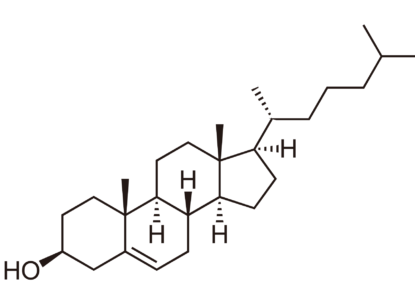The Klotho-VS Gene Mitigates ApoE4 Risk: How to Test For It
Genes Mentioned

Alzheimer’s disease is the most common type of dementia and is believed to be caused by misfolded proteins beta-amyloid and tau accumulating in the brain, likely contributing to the progressive death of nerve cells.
Over 30 years ago, it was found that genes play an important role in determining our risk of Alzheimer’s.
- People who carry one copy of the defective e4 allele of the ApoE gene have nearly four-fold higher risk of developing Alzheimer’s compared with those who carry two copies of the e2 allele.
- In people whose both copies of ApoE are e4, the risk increases nearly 12-fold. 2
Alzheimer’s becomes more common as we age, affecting approximately ~1 in 14 of those over 65; and by the time we reach 80, the risk becomes over twice as much (~1 in 6). 1
How to test for KLOTHO-VS variant
Recently, it was found that Alzheimer’s risk conferred by the ApoE e4 allele can be reduced by mutations in another gene called KLOTHO. Carriers of both ApoE e4 and the so-called KLOTHO-VS variant develop Alzheimer’s ~40% less frequently than people with ApoE e4 and other KLOTHO alleles. 3
KLOTHO-VS can be indentfied by looking at two SNPs:
- rs9536314
- rs9527025
Note that because these SNPs are in perfect linkage disequilibrium with each other, the Klotho-VS variant can be identified with either SNP. In our KLOTHO-VS reporting, we use rs9536314 because the SNP is present in V3 and V4 23andme chips which gives a greater number of our customers access to this crucial information.
The bottom line here is that if you already have access to your 23andme raw data, you can determine your status for the KLOTHO-VS variant.
KLOTHO-VS frequency
Since both ApoE e4 and KLOTHO–VS alleles are relatively common (~15% each), this is an important finding for predicting the risk of this grave condition. But beyond risk prediction, the fact that these proteins are involved in Alzheimer’s development may open a window into the mechanisms of this condition that remains quite poorly understood and lacks effective treatments, despite decades of active research.
Both proteins are better-known for their function in parts of the body other than the brain. ApoE is a key regulator of cholesterol transport, helping to clear it from plasma and thus reduce the risk of atherosclerosis and cardiovascular disease. 4 KLOTHO was identified as a gene whose loss caused aging in mice. 5 At the molecular level, it is best characterized by its role in phosphate metabolism, with implications for bone and kidney health.
APOE and KLOTHO in the brain
How ApoE and KLOTHO affect the brain is only beginning to be unravelled.
APOE
It is known that ApoE is produced by a type of support cells in the brain called astrocytes. Astrocyte-produced ApoE has been implicated in the maintenance and repair of neurons, and is thought to help clear the misfolded beta-amyloid protein. 6
- Recently, a study showed that ApoE may also be important for another type of support cells in the brain called oligodendrocytes.
- A key role of these cells is to produce myelin, a protective “sheath” around neurons.
- The myelin sheath consists of both proteins and cholesterol, which are synthesised by oligodendrocytes. It was found that oligodendrocytes bearing the defective ApoE e4 variant cannot effectively clear cholesterol and accumulate it. 7
- This causes damage to these cells and impaired myelin production, leaving neurons less protected as a result.
- Whether this effect of defective ApoE is critical for Alzheimer’s development compared with its other roles in the brain, however, remains to be found.
KLOTHO
How about KLOTHO? This protein is detected in various parts of the brain, with its expression diminishing with age.
- KLOTHO was shown to be neuroprotective, but the exact mechanisms of this effect are hard to determine, because of the multitude of signalling and metabolic pathways that this protein regulates. 8
- One intriguing fact about KLOTHO is that it’s present in two forms: one attached to the cells and one circulating in the bloodstream.
- An important way in which the KLOTHO–VS allele can help mitigate the risk of ApoE e4 is that it increases the amount of circulating KLOTHO. 9
- Whether circulating KLOTHO directly interacts with ApoE and somehow compensates for the defective function of its e4 variant, or whether it just helps keep neurons in a better shape more generally, remains to be understood.
Overall though, evidence from genetics clearly positions these two proteins, which have much better-known roles elsewhere in the body, as very important regulators of our brain health.



